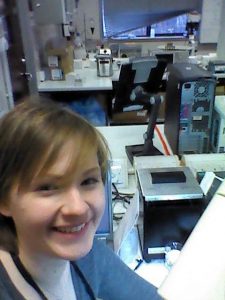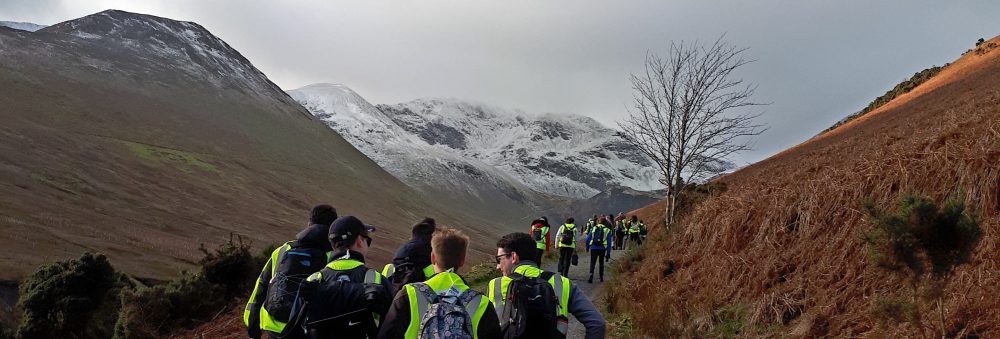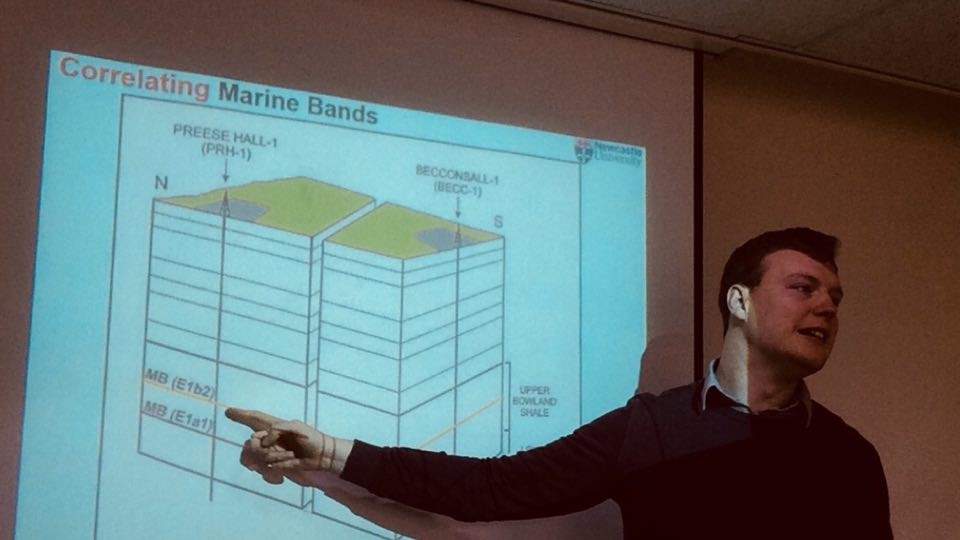
Aleksandra Svalova PhD Student
Student Name: Aleksandra Svalova
PhD Project Title: Ultrasound spectrometry of the aggregation of asphaltenes during the formation of water-in-oil emulsions
PhD Project Summary: Water-in-oil emulsions (WOE) are highly stable mixtures occurring during crude oil production and spills. Emulsion removal from the water column is problematic due to the high viscosity and stability of WOE. Failure to remove petroleum spills quickly and environmentally-friendly poses significant environmental and industrial hazards. For efficient removal, WOEs require separation into water and oil which is inhibited by the presence of heavy petroleum particles, asphaltenes, at the water/oil contact.
Asphaltenes are the heaviest, most aromatic and polar constituents of crude oil. Asphaltnes aggregate into small clusters, nanoaggregates, that create a `skin’ around water droplets which further stabilses the emulsion. The asphaltene molecules have a wide distribution of molecular shapes and sizes, which makes any modelling extremely difficult. Our research uses ultrasonic velocity characterisation which was shown to be very effective in detecting molecular aggregation. Ultrasonic velocity measurements are advantageous due to their high precision, non-destructive power levels and the ability to probe opaque and solid samples.
Our research focuses on determining the concentration at which asphaltene single molecules start forming nanoaggregates in a model petroleum. This concentration is termed as the critical nanoaggregate concentration (CNAC). We discover evidence for the possibility of a critical nanoaggregation region (CNR) whereby asphaltene molecules aggregate over a concentration range. This is supported by the behaviour of surface-active compounds in solution. We deploy geochemical techniques, such as oxidation, in order to probe the molecular structure of asphaltenes. We deploy statistical analysis to relate asphaltene structural properties and aggregation behaviour. Finally, statistical modelling allows to compare the likelihood of a CNAC versus a CNR in our velocity data.
Supervisors: Abbott, G.D & Nicholas, G.P
List of Publications:
Svalova A., Parker N.G., Povey M.J.W. and Abbott, G.D. Determination of Asphaltene Critical Nanoaggregate Concentration Region Using Ultrasound Velocity Measurements. Scientific Reports. 2017;7:1-11.
What aspect of studying a PhD at Newcastle University do you enjoy the most?
I really enjoy the friendly research culture and supportive staff. It is the excellent people that surround and inspire me that move my research further.
What advice would you give new PhD student/students considering studding a PhD at Newcastle University?
Newcastle University is an excellent institution to pursue doctoral studies due to a thriving research culture, outstanding facilities and a vibrant social life. The students and staff are very friendly and supportive. There are many opportunities to share your research and participate in seminars, conferences and competitions. The Postgraduate Research Development Programme offers a variety of courses allowing to develop research, admin and self-management skills. Newcastle University has recently seen a succession of large-scale developments, including a multi-million urban sciences, business and research centre Helix, redevelopment of the historical Armstrong Building and the Hatton Gallery and the opening of a new events venue Boiler House. Additionally, the opening of multiple student accommodation sites around Newcastle makes this city very much a home away from home. The local social and cultural scene is what makes Newcastle one of the best student cities in the UK, with a multitude of art venues, bars and clubs. A picturesque coastline is only 30 minutes away from the campus, the stunning Quayside is a 5-minute walk from the city centre down one of Britain’s most beautiful streets and the surrounding areas like Jesmond and Gosforth define class. In short, Newcastle is the place to be


